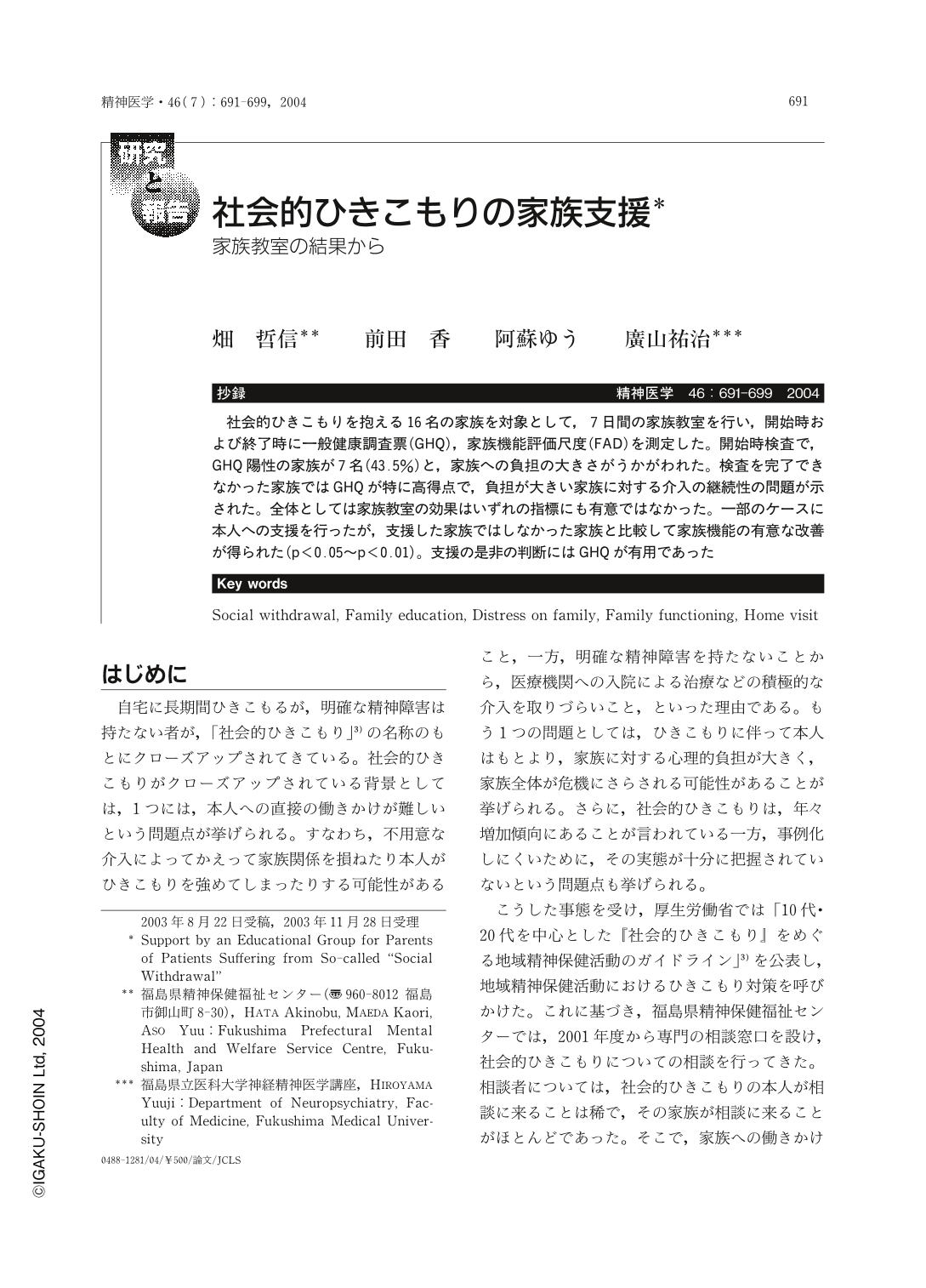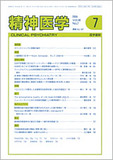Japanese
English
- 有料閲覧
- Abstract 文献概要
- 1ページ目 Look Inside
- サイト内被引用 Cited by
抄録
社会的ひきこもりを抱える16名の家族を対象として,7日間の家族教室を行い,開始時および終了時に一般健康調査票(GHQ),家族機能評価尺度(FAD)を測定した。開始時検査で,GHQ陽性の家族が7名(43.5%)と,家族への負担の大きさがうかがわれた。検査を完了できなかった家族ではGHQが特に高得点で,負担が大きい家族に対する介入の継続性の問題が示された。全体としては家族教室の効果はいずれの指標にも有意ではなかった。一部のケースに本人への支援を行ったが,支援した家族ではしなかった家族と比較して家族機能の有意な改善が得られた(p<0.05~p<0.01)。支援の是非の判断にはGHQが有用であった
Summary
Sixteen parents of thirteen patients suffering from so-called “social withdrawal” attended seven days’ of family educational group sessions. Participants were given two tests:a 12-item general health questionnaire (GHQ) and a family assessment device (FAD), before and after the whole course. Seven parents (43.5%) were shown to have mental health problems by the first GHQ test, suggesting a high level of burden for the parents. In particular, three out of four parents whose GHQ scores were six or more dropped out of the sessions and could not complete the second test. A high level of burden may be a good predictor of non-adherence to family educational group sessions. More intensive support may be necessary for those highly-burdened parents. On the whole, indices of both tests did not change significantly through the family group sessions. Four patients (children of six parents) were directly approached by staff, members either by individual psychotherapy or by home visits. Subscales of FAD improved significantly in these parents compared to those in other parents (p<0.05~p<0.01, group×time effects in repeated measure analysis of variance). Candidates for patient-approach were selected by using information from parents concerning their parent-children relationship. GHQ scores of all of these patients-approached parents, compared to only three of the other 10 parents, were three or less (p<0.05, Fisher's exact test of frequency). As inadequate contact with patients with “social withdrawal” sometimes leads to disruption of the family, it is often difficult to decide which patients to approach directly. The results of this study suggest the usefulness of such an easily administrable device as GHQ in this decision. Further controlled study is necessary to validate these findings in this preliminary study.

Copyright © 2004, Igaku-Shoin Ltd. All rights reserved.


